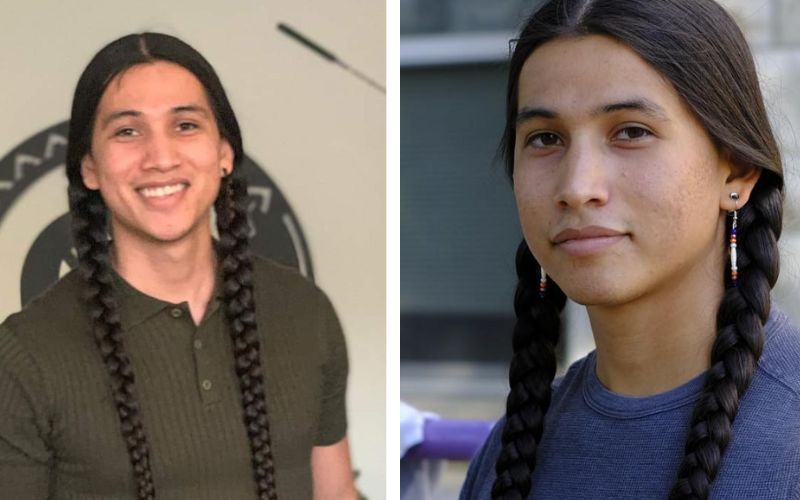
- Details
- By Elyse Wild
Twenty-seven-year-old actor Cole Brings Plenty (Mnicouju Lakota) was found dead this morning at 11:45 a.m. in Johnson County, Kansas, according to the Kansas County Sheriff’s Office.
Brings Plenty was founded in a wooded area near 200th and Homestead Lane. The investigation into his death is ongoing.
Brings Plenty, known for his role in the "Yellowstone" spinoff "1923," was declared missing on Monday, April 1, after missing a meeting with his agent.
Brings Plenty's vehicle, a white 2005 Ford Explorer with chipped paint, was seen leaving Lawrence, Kan. and heading southbound on U.S. Highway 59 on Sunday.
According to a Facebook post by the young actor’s father, Joseph Brings Plenty, authorities found video footage of Cole at a gas station in nearby Baldwin City. The footage was captured at 3:12 a.m. on Sunday. Baldwin City is approximately 30 minutes south of Lawrence.
Two months ago, Cole Brings Plenty and his uncle Mo Brings Plenty, a star on "Yellowstone," joined the National Native American Boarding School Healing Coalition (NABS) on Capitol Hill in Washington, D.C. to advocate for Senate Bill 1723, bill to create a federal commission to investigate the assimilative policies against Native children during the United States boarding school era.
Deb Parker (Tulalip), CEO of NABS, told Native News Online on Friday evening her heart was crushed upon hearing the news of Cole's death.
"Cole joined our team as an advocate because he understood how historical trauma impacts us in our daily lives," Parker said. "He was open, honest, and one of the most caring young men we have had the opportunity to work with in Indian Country."
"We continue to lose our young Native men way too early," Parker continued. She gave this advice: "If you find yourself in a position that is unsafe, please don’t stay silent. Please reach out until someone will listen to your story. There is help available."
Call StrongHearts Native Helpline at 1-844-7NATIVE (762-8483).
Brings Plenty's case has drawn attention and caused speculation across social media, with posts and videos about his disappearance accumulating thousands of views and comments. It has also generated discussions of the Missing Missing and Murdered Indigenous Peoples (MMIP) crisis. American Indian and Alaska Native peoples are at a disproportionate risk for violence, murder, and going missing. Jurisdictional gaps and systemic apathy leave many of these cases unsolved.
This is a developing story.
More Stories Like This
Native News Weekly (August 25, 2024): D.C. BriefsNavajo Nation Gaming Enterprise Marks Problem Gambling Awareness Month With $3.4M in Support
Cheyenne River Youth Project to Celebrate Women’s Strength at Barbie-Themed Passion for Fashion on March 14
Celebrating Native American Women
Native Bidaské: The Illusion of Freedom and the Myth of America 250, Leonard Peltier Speaks Out
Help us defend tribal sovereignty.
At Native News Online, our mission is rooted in telling the stories that strengthen sovereignty and uplift Indigenous voices — not just at year’s end, but every single day.
Because of your generosity last year, we were able to keep our reporters on the ground in tribal communities, at national gatherings and in the halls of Congress — covering the issues that matter most to Indian Country: sovereignty, culture, education, health and economic opportunity.
That support sustained us through a tough year in 2025. Now, as we look to the year ahead, we need your help right now to ensure warrior journalism remains strong — reporting that defends tribal sovereignty, amplifies Native truth, and holds power accountable.
 The stakes couldn't be higher. Your support keeps Native voices heard, Native stories told and Native sovereignty defended.
The stakes couldn't be higher. Your support keeps Native voices heard, Native stories told and Native sovereignty defended.
Stand with Warrior Journalism today.
Levi Rickert (Potawatomi), Editor & Publisher


